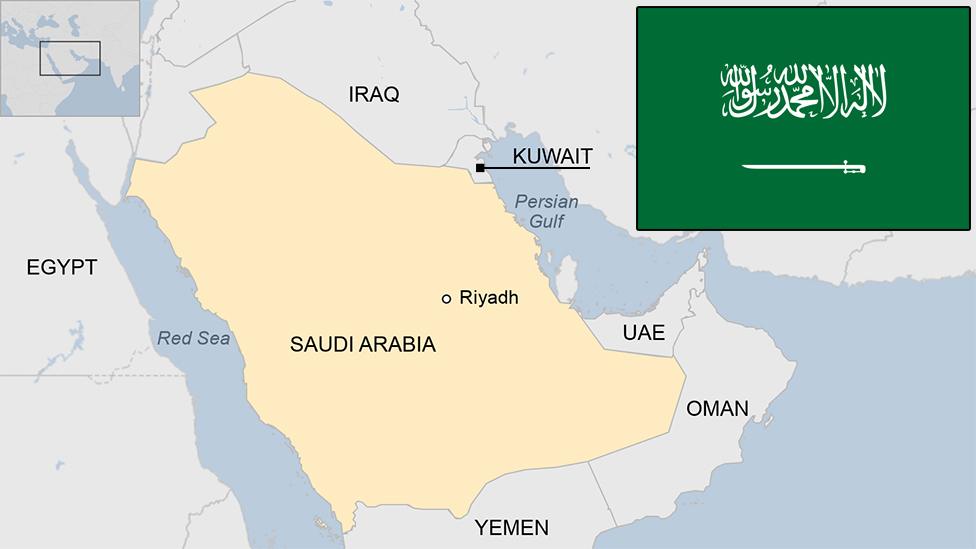Hajj stampede: Saudi king orders safety review
- Published
This pilgrim in Mina says she is "very scared" after Thursday's crush
Saudi Arabia's King Salman has ordered a safety review for the Hajj pilgrimage after at least 717 people died in a stampede near the holy city of Mecca.
Another 863 people were injured in the incident at Mina, which occurred as two million pilgrims were taking part in the Hajj's last major rite.
It is the deadliest incident to occur during the pilgrimage in 25 years.
The king said there was a need "to improve the level of organisation and management of movement" of pilgrims.
In pictures: Aftermath of the stampede
Accounts from BBC staff in Mina
'It is not God's will, it is man's incompetence'
The crush occurred after two massive lines of pilgrims converged on each other from different direction at an intersection close to the five-storey Jamarat Bridge in Mina.
BBC reporter Tchima Illa Issoufou: "I lost my aunt as a result of the stampede"
As part of the Hajj, pilgrims travel to Mina, a large valley about 5km (3 miles) from Mecca, to throw seven stones at pillars called Jamarat, which represent the devil. The pillars stand where Satan is believed to have tempted the Prophet Abraham.
The crush is the second disaster to strike in two weeks, after a crane collapsed at the Grand Mosque in Mecca, killing 109 people.
Iranian anger
Offering condolences to the relatives of the dead and injured, King Salman said: "We have instructed concerned authorities to review the operations plan and to raise the level of organisation and management to ensure that the guests of God perform their rituals in comfort and ease."
Saudi Arabia's Crown Prince Mohammed bin Nayyef, who chairs the Hajj committee, has begun an inquiry into the tragedy.

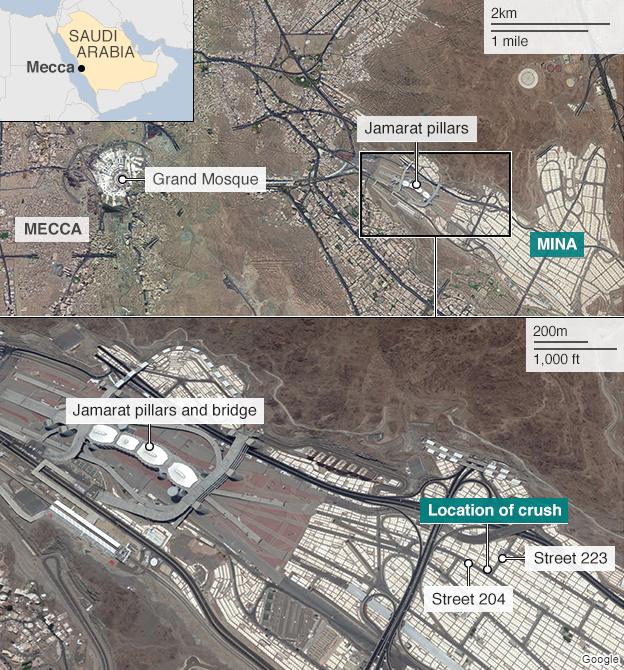
Deaths reported so far by nationality
Iran: 131
India: 14
Pakistan: 6
Turkey: 4
Indonesia: 3
Kenya: 3
Other nationalities (numbers not yet known): Niger: Chad

Interior ministry spokesman, Maj Gen Mansour al-Turki, said the reason for the unusual number of pilgrims at the site of the disaster was "not known yet".
Health Minister Khaled al-Falih promised a "fast" investigation and said the crush occurred "perhaps because some pilgrims moved without following instructions by the relevant authorities".
However, the head of Nigeria's Hajj delegation, the Emir of Kano Muhammadu Sanusi II, told the BBC the crush "happened on the designated ways for incoming and outgoing pilgrims to the site crossing each other - which shouldn't be.
"We are therefore urging the Saudi authorities not to apportion blame to the pilgrims for not obeying instructions."
Iran has fiercely criticised Saudi Arabia's handling of the pilgrimage.
Announcing three days of national mourning, Supreme Leader Ayatollah Ali Khamenei said: "The Saudi government should accept the responsibility of this sorrowful incident... Mismanagement and improper actions have caused this catastrophe."
'Tripping over'
The disaster began at 09:00 local time (06:00 GMT) on Thursday.
Gen Turki said: "The great heat and fatigue of the pilgrims contributed to the large number of victims."
The temperature in Mina was 46C on Thursday.
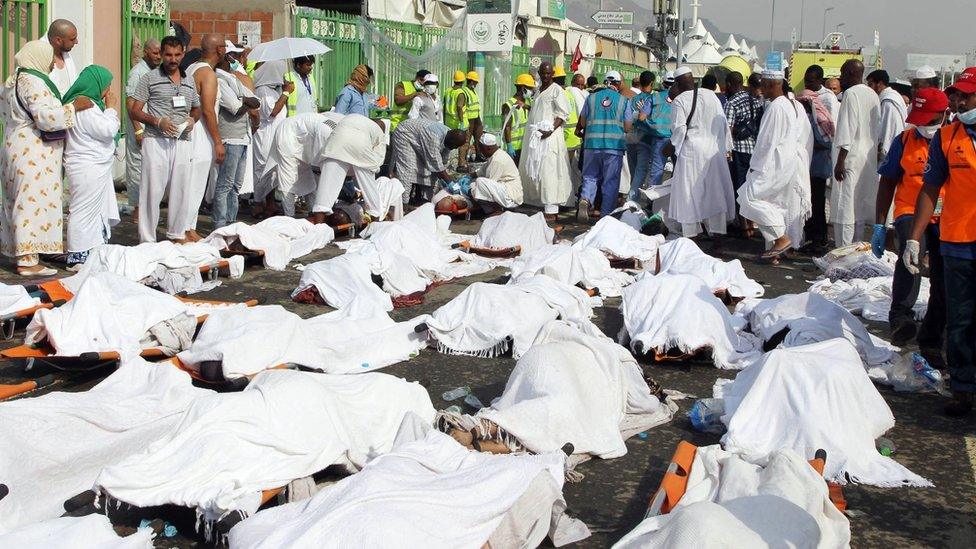
"Dead bodies stretch as far as my eyes can see," one BBC employee in Mina said
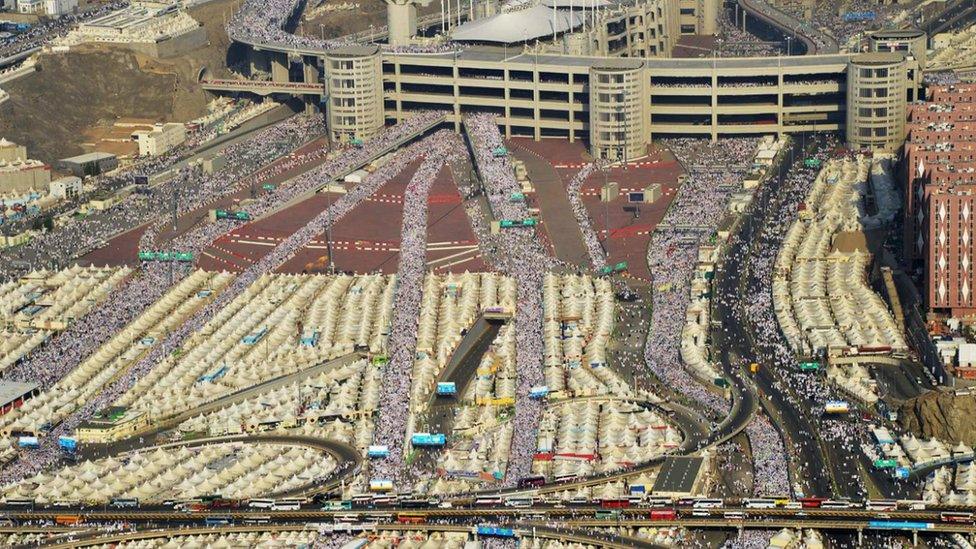
Hundreds of thousands of people continued to the Jamarat pillars despite the tragedy earlier
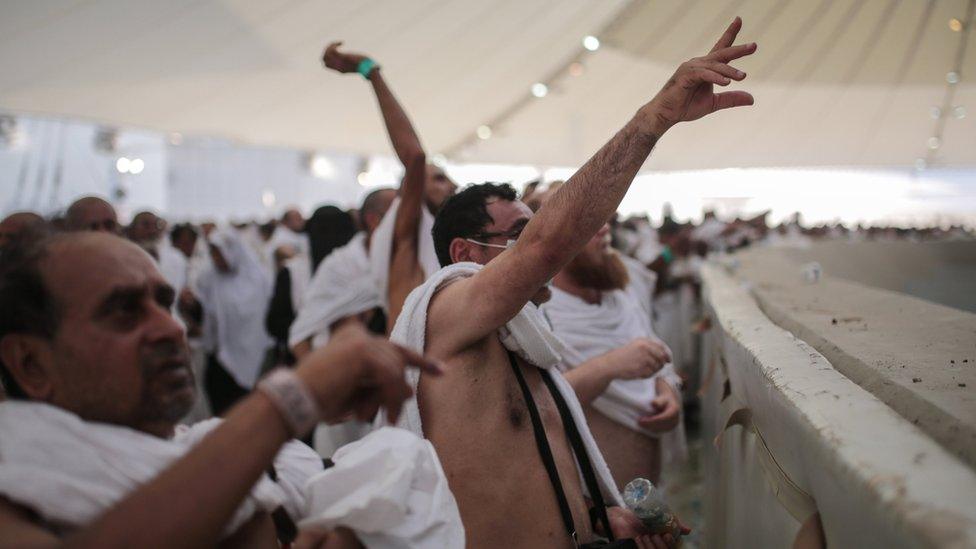
Pilgrims converge on Mina to cast stones at three pillars representing the devil
"I saw someone trip over someone in a wheelchair and several people tripping over him," Abdullah Lotfy, from Egypt, told the Associated Press. "People were climbing over one another just to breathe."
Photographs showed the bodies of dozens of pilgrims on the ground, some piled high. They were all dressed in the simple white garments worn during the Hajj.
"Dead bodies stretch as far as my eyes can see," said Bashir Sa'ad Abdullahi, the BBC's Abuja editor, who is in Mina.
The UK Foreign Office said it was urgently seeking more information about whether British nationals were involved.
Pope Francis, who is visiting the US, expressed his "sentiments of closeness" with Muslims, during a prayer service at St Patrick's Cathedral in New York.

Hajj: Previous tragedies
2006: 364 pilgrims die in a crush at foot of Jamarat Bridge in Mina
1997: 340 pilgrims are killed when fire fuelled by high winds sweeps through Mina's tent city
1994: 270 pilgrims die in a stampede during the stoning ritual
1990: 1,426 pilgrims, mainly Asian, die in a stampede in an overcrowded tunnel leading to holy sites
1987: 402 people die when security forces break up an anti-US demonstration by Iranian pilgrims

The Saudi authorities have spent billions of dollars on improving transport and other infrastructure to try to prevent such incidents.
The Hajj is the fifth and final pillar of Islam. It is the journey that every able-bodied adult Muslim must undertake at least once in their lives if they can afford it.
The number of people attending Hajj rose from 57,000 in 1921 to a high of 3.2m three years ago, according to the Saudi Central Department of Statistics and Information, external.
That figure dropped to just over two million last year.

Are you at Mecca, or do you know someone who is? If it is safe to do so, let us know about your experiences. Email haveyoursay@bbc.co.uk, external with your stories.
Please include a contact number if you are willing to speak to a BBC journalist. You can also contact us in the following ways:
Send pictures/video to yourpics@bbc.co.uk, external
Tweet: @BBC_HaveYourSay, external
Send an SMS or MMS to +44 7624 800 100
WhatsApp: +44 7525 900971
- Published25 September 2015
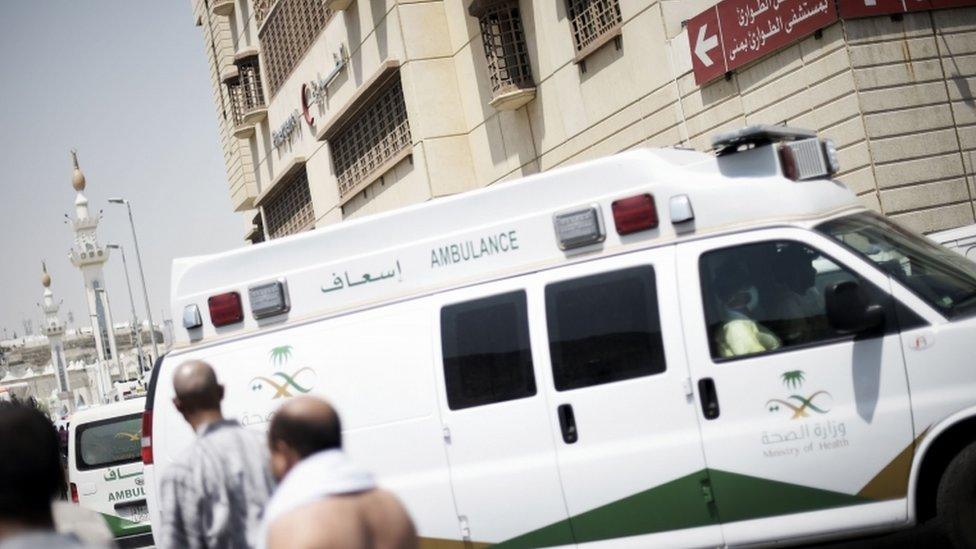
- Published25 September 2015
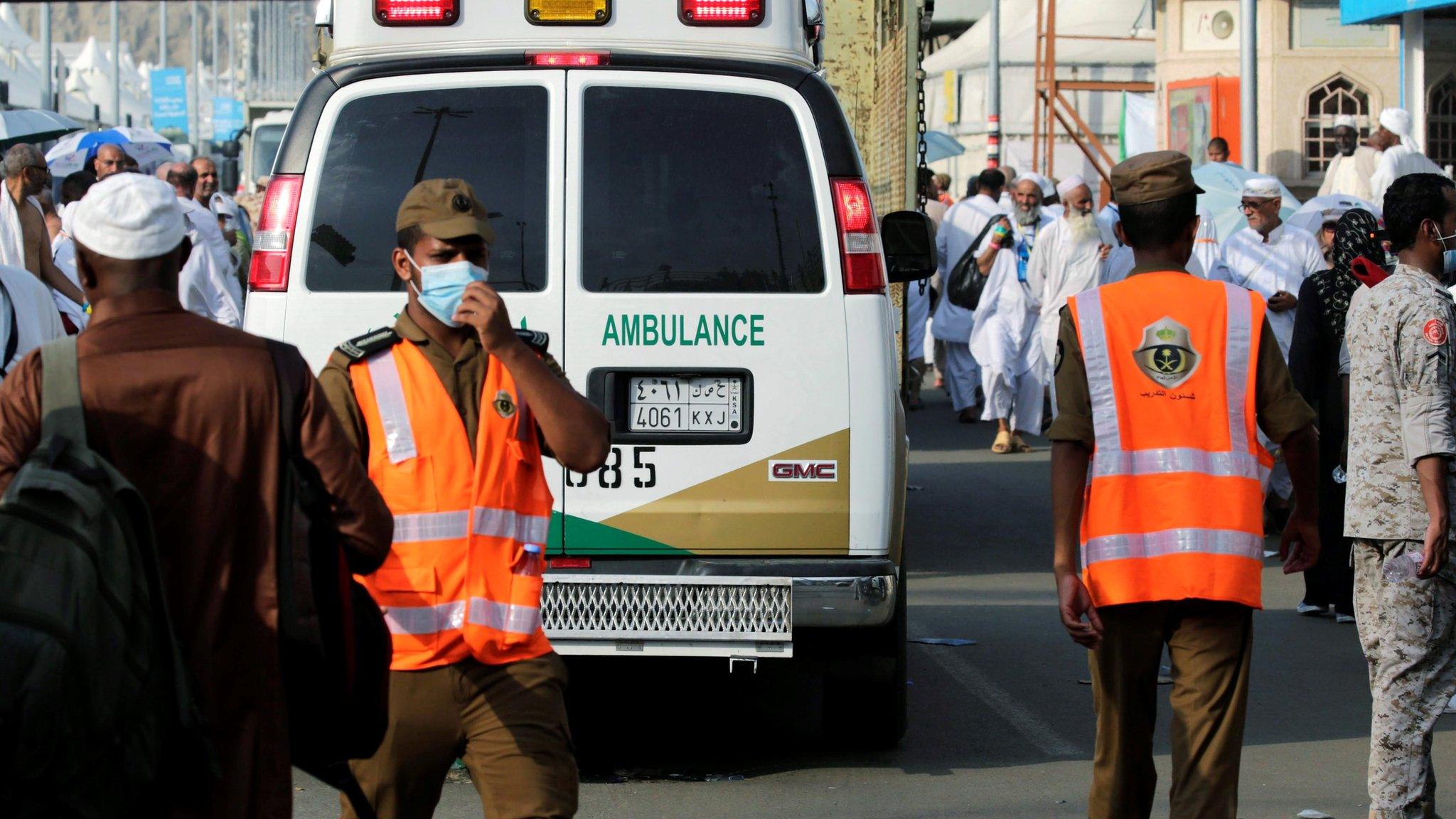
- Published25 September 2015
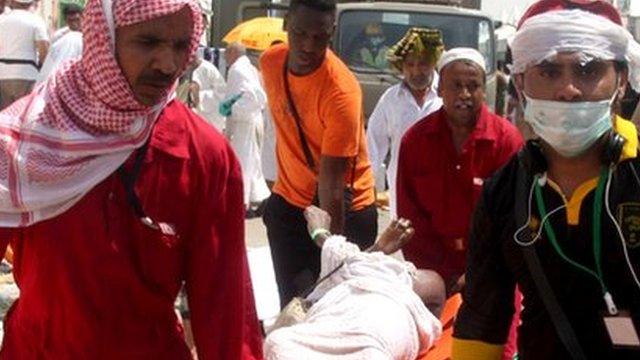
- Published24 September 2015
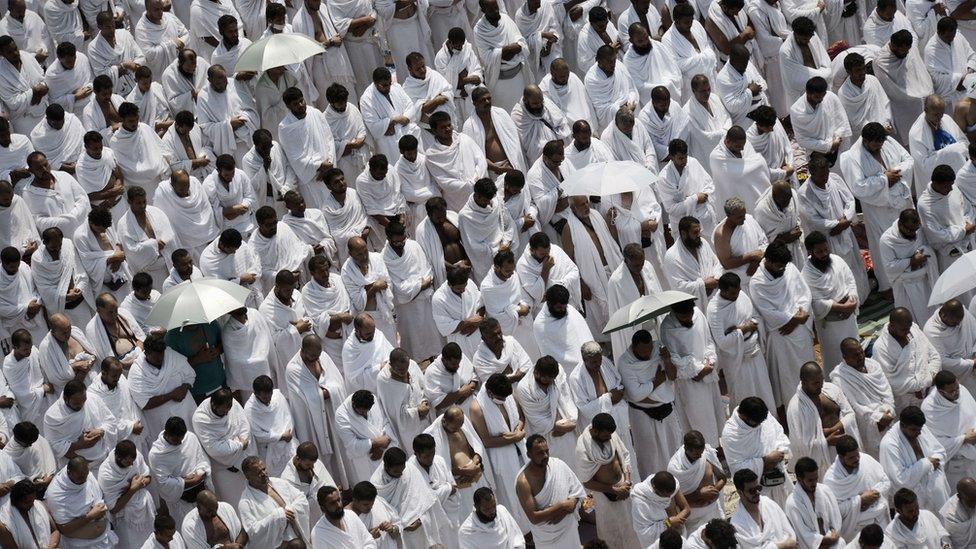
- Published24 September 2015
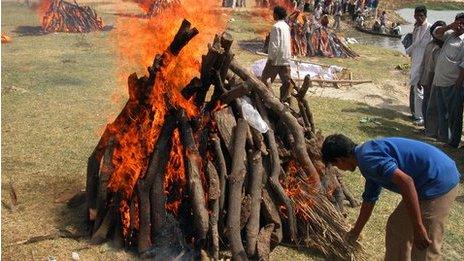
- Published24 September 2015
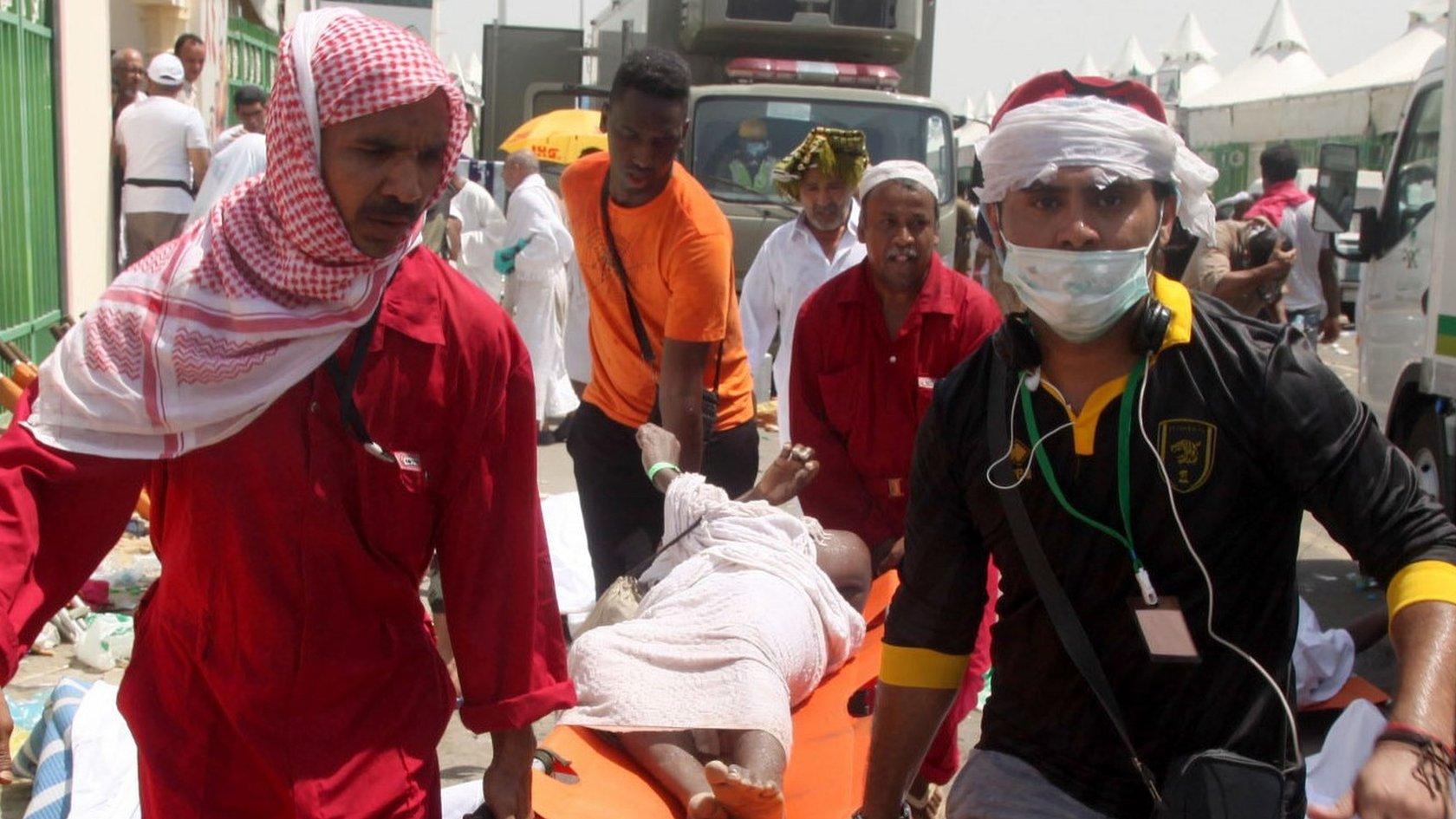
- Published24 September 2015
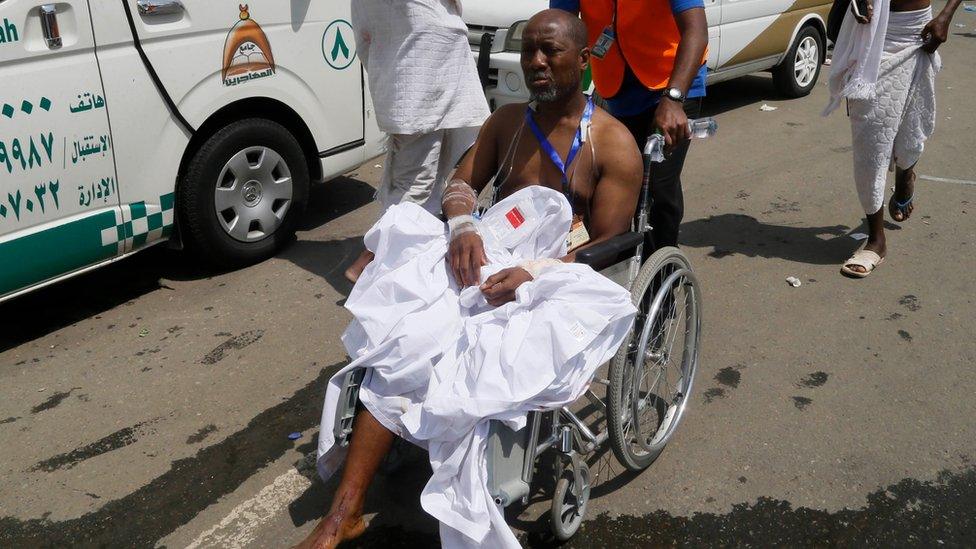
- Published24 September 2015
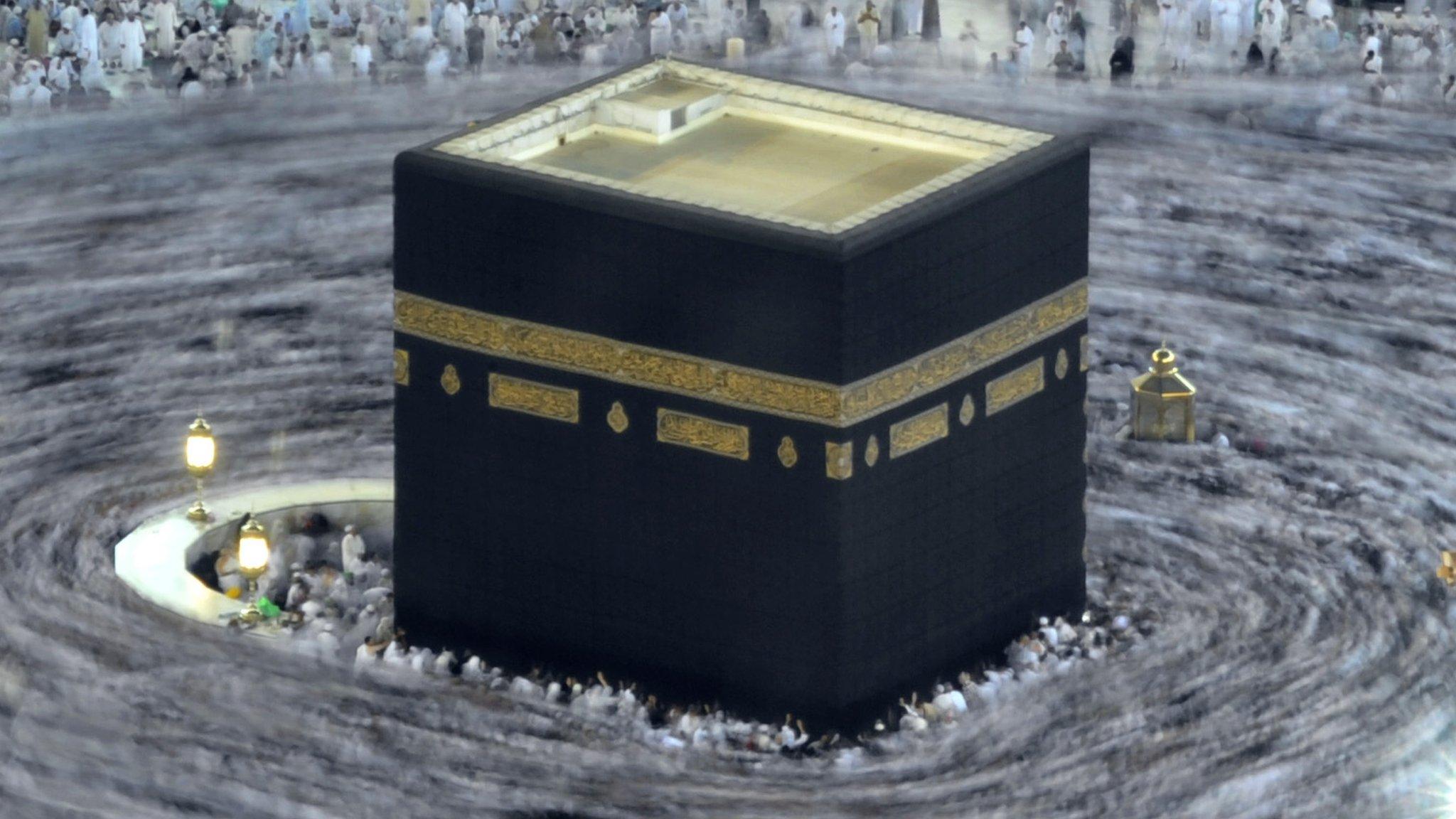
- Published24 September 2015
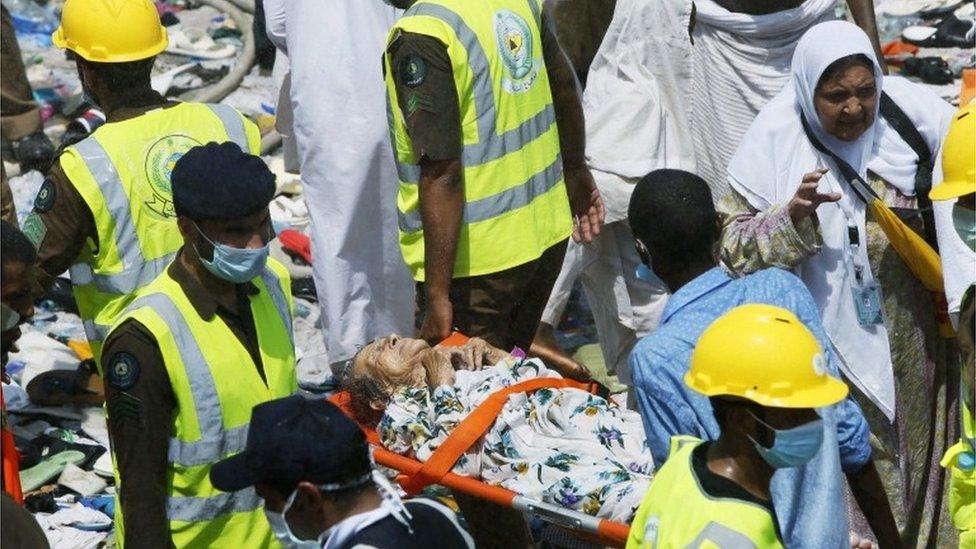
- Published12 September 2015
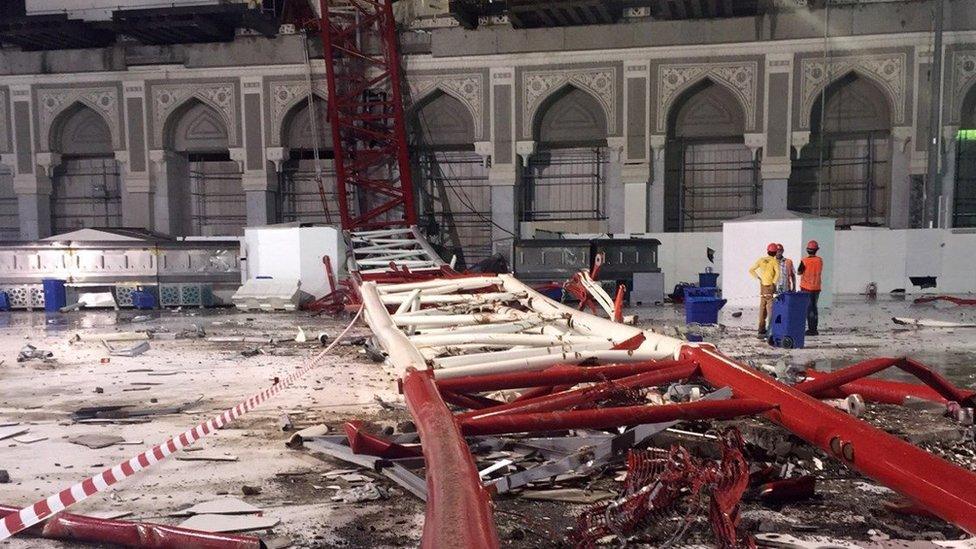
- Published29 August 2023
